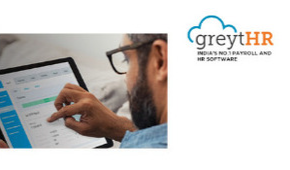Know the HR trends as we enter the new post COVID-19 phase
The Covid-19 pandemic is reshaping the world of business in myriad ways and within a very short span of time. As leaders and employees struggle to adapt, HR has acquired a new significance as the heart of the post-Covid organization. Several trends have emerged in HR’s response to post-COVID work that could potentially redefine the workplace as we know it. These include hybrid work models, tech and automation, as well as better benefits. Read on for more:
Designing a hybrid workplace
Working from home is likely to be the new norm in the foreseeable future, even post-COVID-19. This calls for creating a hybrid workplace model where employees come to the office only as needed. Managers and C-suite executives must consciously carry usual business practices — such as team catch-ups, public recognition, and one-on-one support — into a virtual office environment. Employees should be given remote access to information relevant to them and be encouraged to share their own ideas on maintaining a sense of community.
Leveraging AI
HRMS will play a decisive role in defining artificial intelligence in the new normal post COVID. The groundbreaking technology comes with many advantages for workplaces — personalized feedback forms and employee recognition systems help gauge engagement and boost retention. AI can also be incorporated into operations such as leave and attendance to ensure no-touch safety — especially relevant in the current circumstances.
Improving the benefits structure
Simply enabling remote work isn’t enough. HR needs to develop and implement a comprehensive benefits plan that provides employees with the financial and mental security they need. For instance, employees with children or aged/sick family members to look after can be given a certain amount of paid caregiver leave. Sick leave can be extended or made unlimited, and financial bonuses can be given to employees to help them set up home offices. Such changes and flexible policies can only be implemented when backed by strong payroll and attendance software.
Providing mental health support
The pandemic’s aftermath is likely to continue until the end of 2020 and even beyond, causing immense mental stress among employees. It is essential for HR to recognize and acknowledge this stress and to assist teams through it. One way to do this is by organizing workshops and virtual open houses where leaders talk about stress management and offer personal advice to those who need it. Another essential step is to be flexible about work routines and at-home commitments that employees may have, particularly if there are elderly, children, or pets involved.
The world won’t go back to pre-COVID normalcy for a long time to come. The best we can do then is embrace the changes and trends thrown up by this pandemic. With the right HR tools and support in place, workplaces too can roll with the punches and emerge successfully on the other side.







